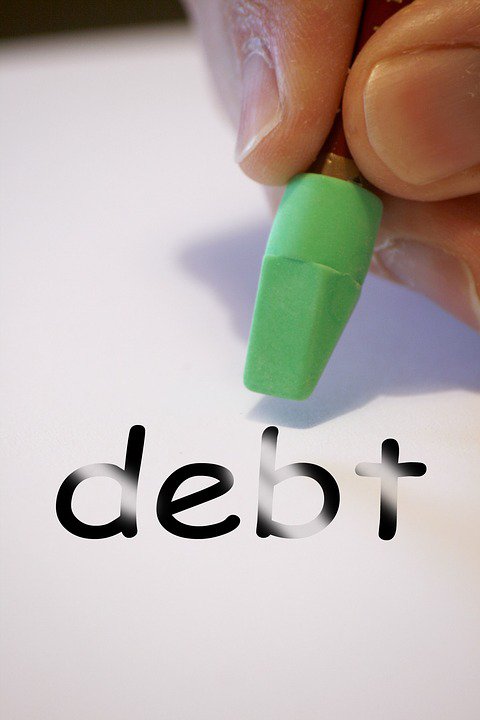
STUDENT DEBT FORGIVENESS | IS IT POSSIBLE?
 How to Get a Student Loan Discharge
How to Get a Student Loan Discharge
Taking student loans is sometimes the only way students can pay for their education. Repayment of the loans, however, can prove to be a daunting task, and seeking student debt forgiveness may be the only option available to ease the burden of a student loan.
There are many methods students can apply to have their debts forgiven, and choosing to file for bankruptcy is one of the most viable options. The two avenues of bankruptcy that can be used to seek a loan discharge are Chapter 7 and Chapter 13 bankruptcy.
Chapter 7 Bankruptcy
Chapter 7 Bankruptcy, also known as liquidation, is awarded to those who feel the debt they owe is too large to pay and that they will never be able to pay it off completely. If a judge accepts your bankruptcy claim, you may be required to sell some of your assets, such as a car, to pay a portion of your debt.
The court uses a means test to establish whether you have the ability to produce enough income to pay your debt. If you pass the test, you qualify for student debt forgiveness. The factors considered in the test include:
• Little or no income earned by the student
• You can barely cater for your monthly living expenses
• You live in a rental home or have no equity in your place of residence
• You have no valuable assets
• Your monthly income is below the state’s average income for a family the size of yours.
If you satisfy one or more of these qualifications, you can file for Chapter 7 bankruptcy with John E. Pytte.
Chapter 13 Bankruptcy
Filing for Chapter 13 bankruptcy with John E. Pytte is suitable when you are willing to repay a part of your loan, but you do not have the money for legal fees on hand. Payment of legal fees can be arranged so that you pay a small amount monthly to ease your burden. The process of filing a Chapter 13 bankruptcy case takes about an hour.
If your bankruptcy plea is accepted by the court, you are expected to pay what you can on your student loan in installments over three to five years. After the appointed period, you will receive a federal discharge that releases you from any obligation to pay the student loans.
If you have past due payments on the collateral that you would like to keep, Chapter 13 is a better option for you.
Advantages of Filing for Chapter 7 or Chapter 13 Bankruptcy
• Once you have filed, creditors are barred from attempting lawsuits and harassing you through threatening calls.
• During the court proceedings, debt collection is deferred, and you are not required to make any payments to student loan companies.
• John Pytte can assist you to consolidate your student loan debt.
• If your case qualifies, your attorney may file adversary charges against loan lenders and have your student loan discharged, forgiven or cancelled.
Filing for bankruptcy helps you get your education loan discharged, offering you a fresh start financially. You can begin a new, debt-free life if the court accepts your plea.
Getting up the courage to file for bankruptcy is never an easy task. You have to be brave enough to admit that you are in a harsh economic situation and cannot afford to repay your education loan. Hiring a trustworthy and experienced bankruptcy lawyer, such as John E. Pytte, will help make the process more bearable and increase your chances of success.
John E. Pytte is a well-known and respected bankruptcy attorney in Savannah and Hinesville, GA. He has helped many students get their loans discharged. Therefore, call or visit our office today and take yourself one step closer to student debt forgiveness. Remember, the first consultation is always free.